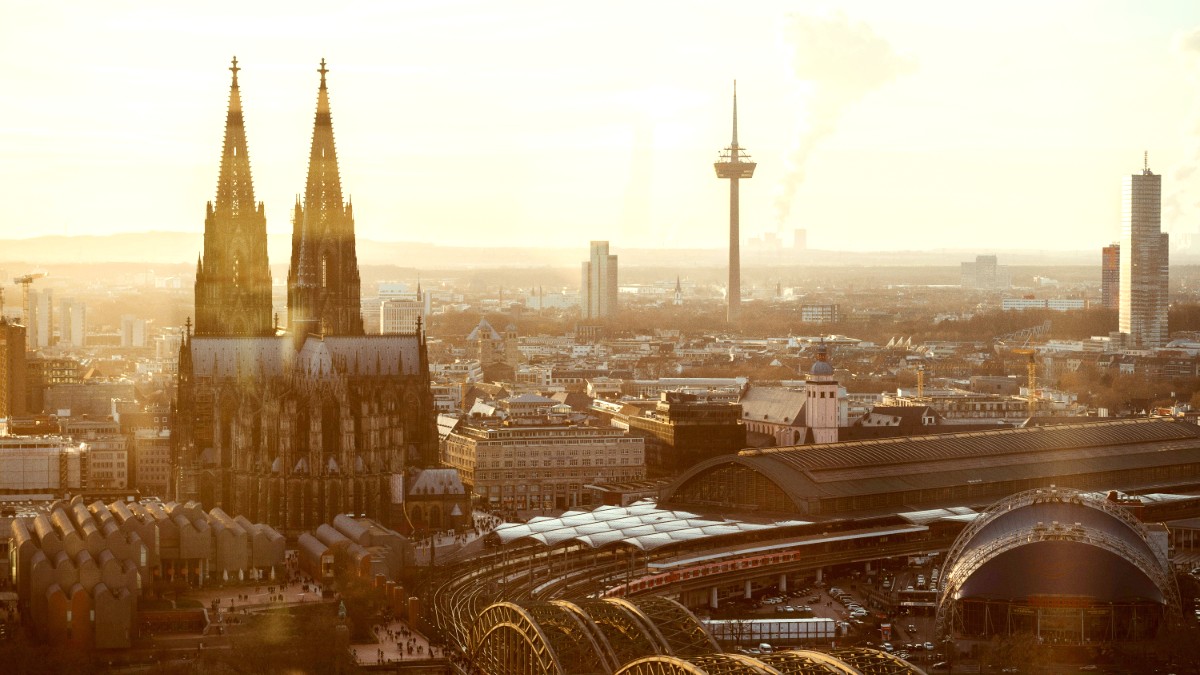
North Rhine Westphalia, Germany
Cologne contains important green spaces like city parks and the Rhine River. Ongoing efforts maintain river and bank cleanliness. Eifel National Park and Siebengebirge Nature Park are designated protected areas.
Germany operates one of the most advanced recycling systems. The 'Pfand' deposit-refund system encourages bottle/can returns for a deposit. Separate bins exist for paper, plastic/packaging, glass, and organic waste.
Tap water in Cologne is safe and potable. Using a Reusable water bottle reduces single-use plastic. Consider airlines with carbon offset programs for flights and prioritize trains (Deutsche Bahn) for intercity travel.
Make conscious choices that reduce your environmental footprint.
Look for hotels with environmental certifications (e.g., Green Globe) or those that promote energy efficiency, waste reduction, water conservation, and local sourcing.
For intercity travel within Germany, prioritize using the extensive train network (Deutsche Bahn). Train travel often presents as more eco-friendly than flying for domestic routes. Within Cologne, rely on public transport, walk, or cycle to minimize your carbon footprint.
When packing, consider bringing reusable items to reduce waste. Many companies now offer sustainable travel gear.
Choose tour operators that stress responsible tourism, minimize environmental impacts, and educate participants on sustainable practices during their journeys.
Support conservation organizations through their stores, like The Rainforest Site (GreaterGood), which contributes to environmental causes.
Learn MoreFind reusable alternatives for daily products at stores like Package Free Shop to diminish your environmental impact.
Shop SustainablyYour choices contribute to preserving Cologne's environment and supporting its green initiatives. Conscious travel decisions make a tangible positive influence.
Engaging respectfully with local culture enriches your experience and strengthens community ties.
Cologne places importance on preserving its multi-layered history, from Roman foundations to medieval churches and post-war reconstruction. This dedication informs the city's approach to its cultural sites.
Be polite and respectful in interactions with locals. A few basic German phrases convey effort and respect. Be mindful of noise levels, especially in residential areas late at night.
In Germany, individuals possess a 'right to their own image.' While public spaces permit photography, prominently featuring identifiable individuals without their consent may lead to privacy concerns. Practice discretion and respect.
When visiting churches or other religious sites, dress modestly; covered shoulders and knees convey respect. Maintain a low voice and avoid disruptive behavior, especially during services. Silence your mobile phone.
Responsible spending contributes positively to the local economy and communities.
Support local businesses, especially small, independent shops, cafes, and restaurants beyond main tourist strips. These often offer authentic products and experiences.
Look for fair trade certifications, especially for coffee, chocolate, or crafts. This ensures producers receive fair compensation. Buy directly from artisans or small local producers.
Dine at traditional Brauhäuser, often independent and rooted in Cologne's culture. Shop at local bakeries, butcher shops, and weekly markets for fresh produce.
Be aware of any activities or services that might exploit local communities, animals, or natural resources. Research tours to ensure ethical conduct and avoid participation in harmful practices.
Your presence as a respectful traveler creates a positive influence.